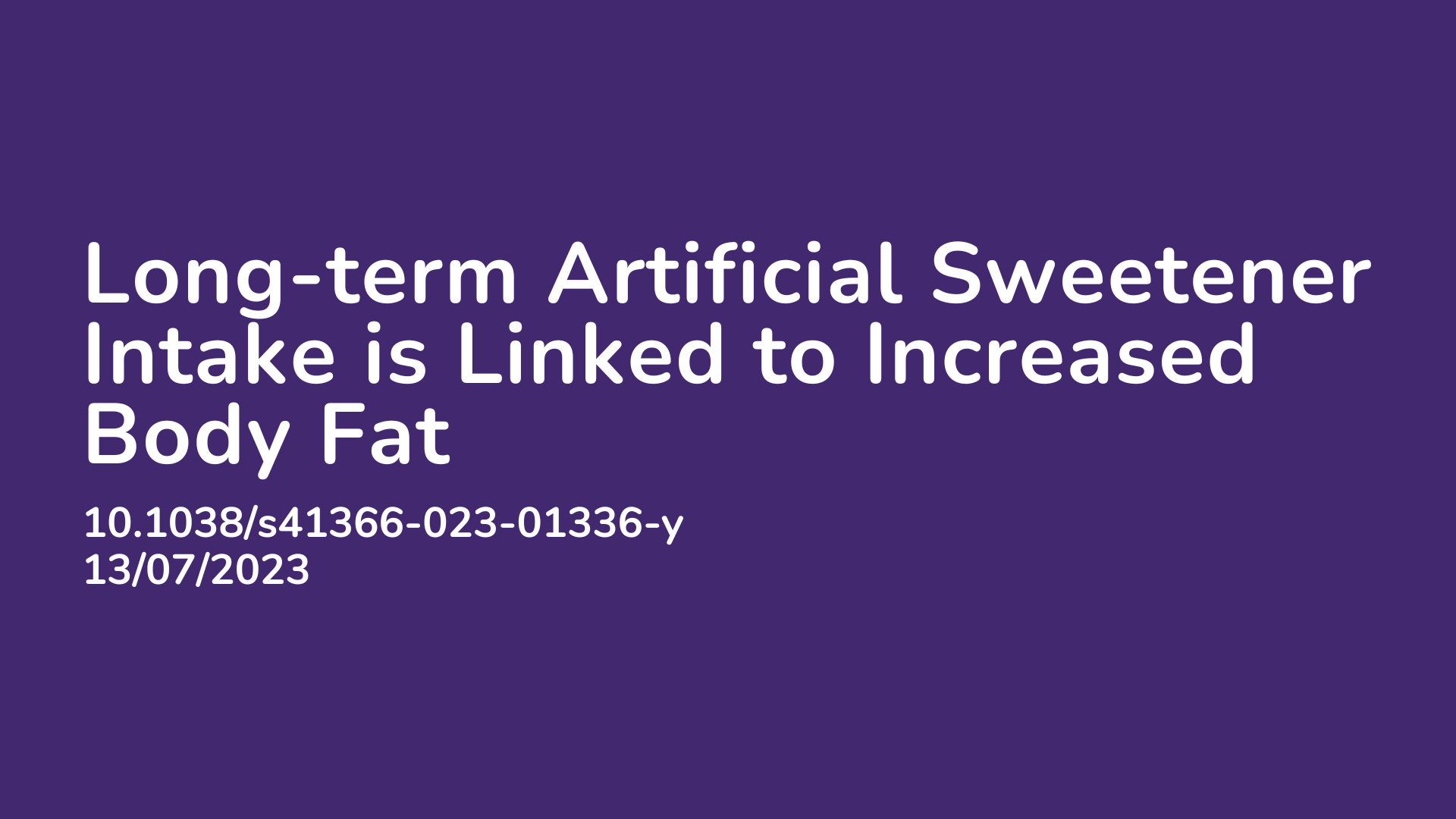Summary:
Previous observational studies have linked artificial sweeteners such as aspartame and saccharin with a higher body-mass index (BMI), however this study aimed to assess whether long-term and habitual artificial sweetener intake was also associated with increased adipose fat as well as a higher BMI. This study followed 3088 men and women over a 25 year period to analyse their dietary habits against their weight outcomes. The results showed that long-term intakes of aspartame, saccharin or other diet beverages that contain artificial sweeteners may increase adipose tissue and the risk of obesity, independent of overall diet and calorie intake.
Abstract:
Background: Artificial sweetener (ArtSw) intakes have been previously associated with higher BMI in observational studies and may promote visceral and skeletal muscle adipose tissue (AT) accumulation. This study aimed to determine whether habitual, long-term ArtSw or diet beverage intakes are related to greater AT depot volumes and anthropometry-related outcomes. Methods: A validated diet history questionnaire was administered at baseline, year 7, and year 20 examinations in 3088 men and women enrolled in the Coronary Artery Risk Development in Young Adults cohort (CARDIA), mean age of 25.2 years and mean BMI of 24.5 kg/m2 at baseline. Volumes of visceral (VAT), intermuscular (IMAT), and subcutaneous adipose tissue (SAT) were assessed by computed tomography at year 25. Linear regression evaluated associations of aspartame, saccharin, sucralose, total ArtSw, and diet beverage intakes with AT volumes, anthropometric measures, and 25-year change in anthropometry. Cox regression estimated associations of ArtSw with obesity incidence. Adjustments were made for demographic and lifestyle factors, total energy intake, and the 2015 healthy eating index. Results: Total ArtSw, aspartame, saccharin, and diet beverage intakes were positively associated with VAT, SAT, and IMAT volumes (all ptrend ≤ 0.001), but no associations were observed for sucralose intake (all ptrend > 0.05). In addition, total ArtSw, saccharin, aspartame, and diet beverage intakes were associated with greater body mass index, body weight, waist circumference, and their increases over a 25-year period. Except for saccharin (ptrend = 0.13), ArtSw, including diet soda, was associated with greater risks of incident obesity over a median 17.5-year follow-up (all ptrend < 0.05). Conclusions: Results suggest that long-term intakes of aspartame, saccharin, or diet soda may increase AT deposition and risk of incident obesity independent of diet quality or caloric intake. Coupled with previous evidence, alternatives to national recommendations to replace added sugar with ArtSw should be considered since both may have health consequences.
Article Publication Date: 13/07/2023
DOI: 10.1038/s41366-023-01336-y



